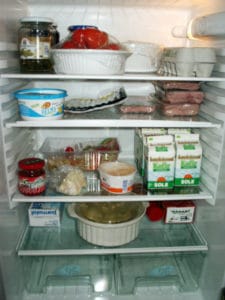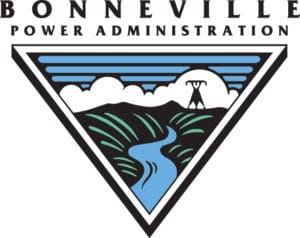Posts by Alicia Healey
Appliance savings just get better and better
A new report issued by the Appliance Awareness Standards Project (ASAP)
shows how important efficiency standards are to a clean energy economy.
Existing efficiency standards from their inception through 2035 will net
consumers and businesses more than $1.1 trillion in savings cumulatively.
And by 2035, cumulative energy savings will reach an amount equal to about
two years of total U.S. energy consumption. New standards set to be
adopted in the next four years will produce even more savings. The report
also includes a state-by-state analysis.
www.appliance-standards.org/content/efficiency-boom
Read MoreSeattle City Light releases draft six-year strategic plan
Now is the time to get involved! The Mayor and Seattle City Council are considering a six-year strategic plan for Seattle City Light. What do you want to see when it comes to new renewable energy sources, increased conservation, increased reliability and investments in infrastructure, predictable rates and more?
Read MoreTwo recent videos highlight the economic benefits of energy efficiency investments
Coalition member Climate Solutions has released a series of videos that show how community based efforts to invest in energy efficiency in Spokane and Kitsap County, WA helped create local jobs and helped home owners and local governments save money even during a time of rising energy prices.
Read MoreSpring NW Clean & Affordable Energy Conference
Mark your calendars for our 2012 Spring Conference and Board Meeting. This year we’ll be at the foothills of the Rocky Mountains in beautiful Kalispell, Montana.
Read MoreNWEC Comments on BPA's oversupply management procedure
The Draft Protocol proposes to address, all in one package, three separate but linked phases: (1) resolving the dispute over the cost shift onto renewable generators that occurred in 2011 as a result of the soon-expiring Interim Environmental Redispatch and Negative Pricing Policies adopted a year ago; (2) the need to address potential oversupply conditions in the oncoming spring and summer 2012 runoff period; and (3) a more permanent method for handling oversupply conditions in future years…
Read MoreRNP releases new report: Renewable investments near $8 billion in Washington state
Washington’s renewable energy sector today announced a milestone in economic development for the state. Capital investment to date in Washington wind, solar, geothermal and biomass has exceeded $7.9 billion, according to data released today by Renewable Northwest Project, a regional nonprofit advocacy group and member of the Coalition…
Read More30th Anniversary Gala & Fall Conference Photos
More than 280 clean energy supporters filled the banquet room at Seattle University’s Campion Hall to help celebrate three decades of advocating for energy efficiency, renewable energy, consumer protection and fish and wildlife restoration at NW Energy Coalition’s 30th Anniversary Gala. Here’s a gallery of photos from the evening…
Read MoreThe Impact reports on the Clean Energy Initiative debate
Coalition Policy Director Nancy Hirsh is featured in this video segment looking at the current roster of proposed changes to Washington’s Clean Energy Initiative. %CODE1%
Read MoreWashington's clean energy future at risk
Since its passage, I-937 has created about $7.5 billion in new investments in this state, creating 7,200 jobs across the region. More than $40 million in property tax revenue has been generated for local communities to pay for schools, firefighters and other public services. And through I-937 our state has realized record energy conservation, saving nearly $70 million on consumers’ electric bills.
Despite these clear benefits, the fate of I-937 hangs in the balance. Two identical bills to amend I-937 – HB 2654 and SB 6396 – have hearings scheduled this week in the legislature…
Read MoreFrom the Sacramento Bee: State has stake in Columbia salmon solution
The story of Pacific salmon has not recently been a happy one. Population declines in the West Coast’s big three rivers – the Sacramento-San Joaquin, Klamath and Columbia-Snake – have meant less fishing, lost jobs, scarce fish and higher prices for consumers. Without major changes to how we manage these waterways, the beating heart of our region’s salmon economy may cease.
Fortunately, there are some bright spots on the horizon. On a growing number of rivers, adversaries are opting to collaborate rather than litigate. People are starting to work together to restore rivers, recover salmon and rebuild jobs.
Read more here: www.sacbee.com
Read More








